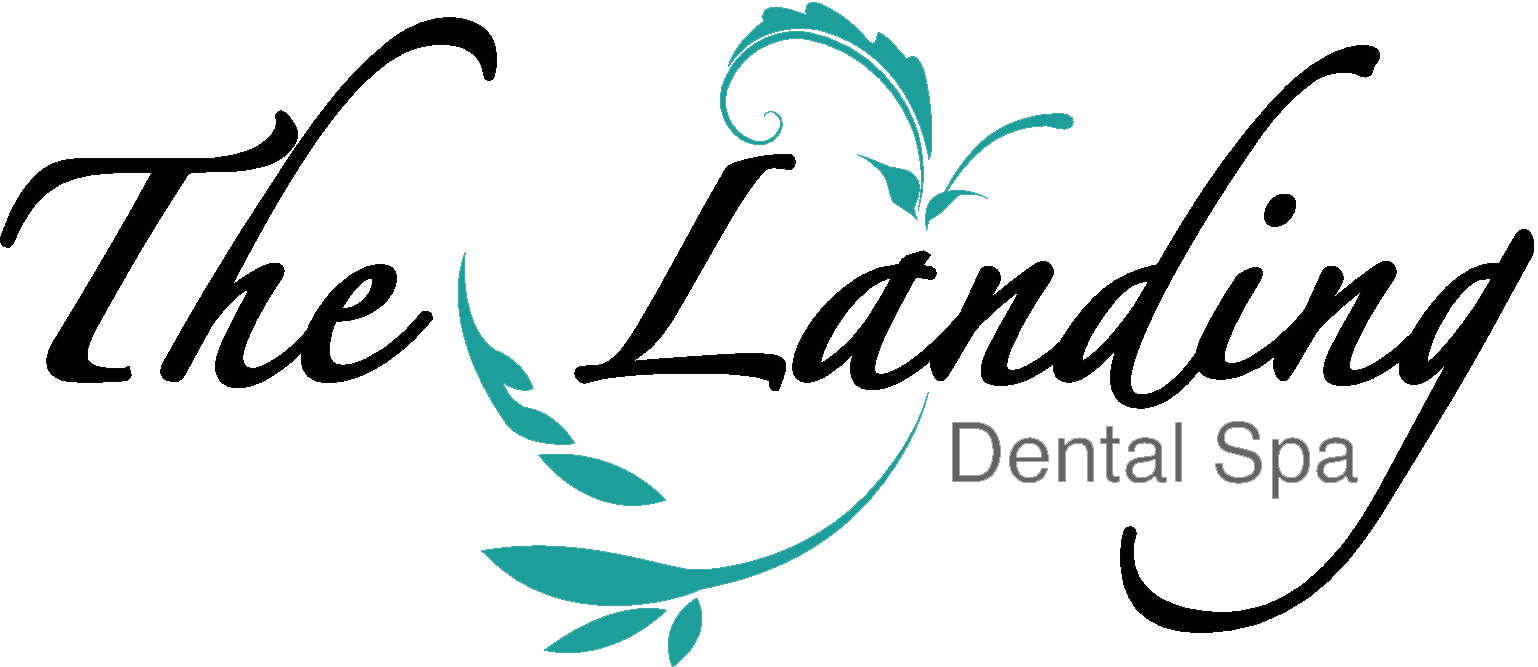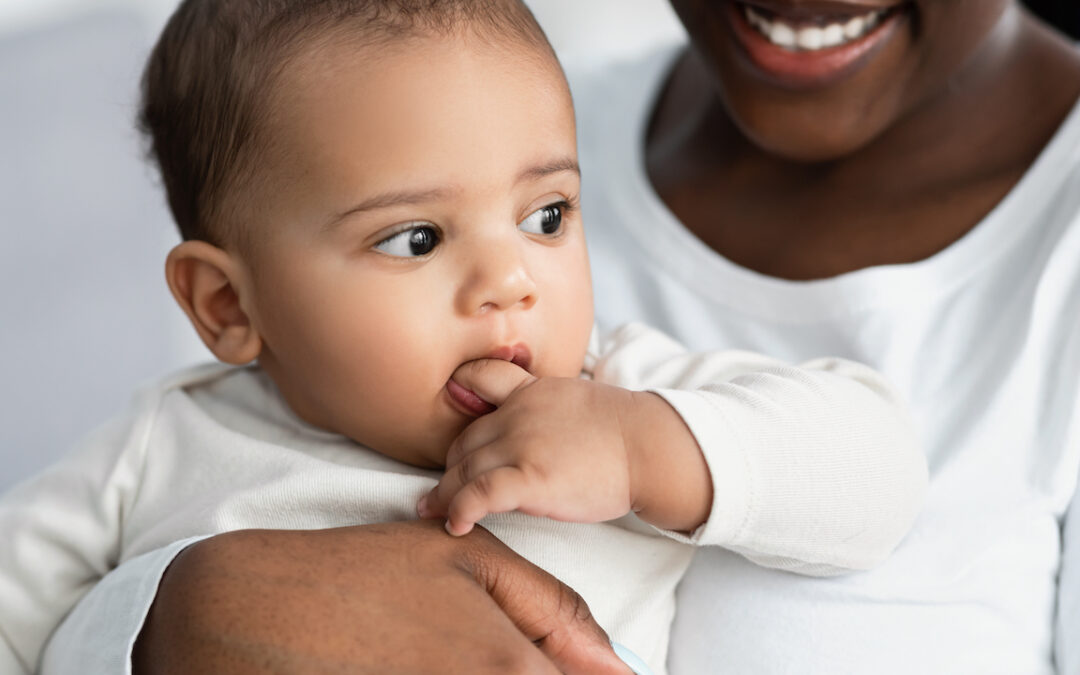The first smile, the first giggle, and the first tooth – each are significant and exciting milestones in a baby’s life. However, teething, in particular, is a challenging time for a child and their parents or caregivers. When those first teeth come in, babies can experience various uncomfortable symptoms that can cause irritability and sleeplessness for everyone in the family. Furthermore, teething is also the time to start thinking about caring for baby teeth, as tooth decay can begin when a baby’s new teeth appear. Continue reading to learn more about teething and how to care for baby teeth.
WHAT IS TEETHING?
Teething occurs when a baby’s teeth erupt (or cut) through their gums. The medical term for this is odontiasis.
WHEN DOES TEETHING START?
Babies are born with 20 primary teeth (baby teeth) below their gum line. According to the American Dental Association (ADA), most babies typically begin to teethe between six and twelve months. By the time they turn three, children usually have a complete set of primary teeth.
WHAT SYMPTOMS DOES TEETHING CAUSE?
Every child is different. So we encourage you to keep in mind that while some babies have little to no discomfort while they teethe, others experience pain and various other symptoms.
Below are some common teething symptoms:
- Fussiness
- Trouble sleeping
- Irritability
- Loss of appetite
- Drooling more than usual
However, if your baby experiences prolonged fussiness, fever, diarrhea, or a rash when they teethe, you should make an appointment with their pediatrician. These symptoms are not typical and may not be the result of teething.
HOW TO SOOTHE A BABY DURING TEETHING
Again, every child is different, so what works for one baby might not work for another. Thankfully, there are some tried and true at-home remedies you can try to help your baby feel better.
- Gently rub your baby’s gums with a clean finger.
- Hold a chilled (never frozen) spoon, washcloth, or rubber teething ring to your baby’s gums. Avoid teething rings made of plastic or filled with liquid, as these are dangerous and may break or leak. It’s also necessary to note that child health experts do not consider teething necklaces safe because they can break and cause strangling.
- Offer your baby cold foods (like chilled strawberries or small cucumber pieces) or unsweetened teething biscuits ONLY if they already eat solid foods. Never leave your baby unattended with food because it is a choking hazard.
ARE THERE ANY MEDICATIONS FOR TEETHING?
Teething medications are generally not effective, as they wash away from the gums and may numb the back of the throat, making swallowing difficult.
Numbing gels and teething tablets with benzocaine are not recommended by the Food and Drug Administration (FDA) for children under two, as they can lead to rare but severe side effects.
The FDA also recommends avoiding and disposing of homeopathic teething tablets. After lab testing, researchers found varying amounts of a toxic substance called belladonna. In some cases, the amount of belladonna in these products exceeded the amount listed on the label. Furthermore, the FDA has not evaluated or approved homeopathic teething tablets.
A small amount of a child’s pain reliever, like acetaminophen, may be helpful for babies older than six months. Remember, always consult with your pediatrician before giving any medication to your child and use it only as prescribed.
HOW TO CARE FOR BABY TEETH
Oral care isn’t just for older children, teenagers, and adults – good oral hygiene is essential for babies, too, as tooth decay can begin as soon as baby teeth emerge.
Below are some essential tips on keeping your baby’s teeth healthy:
- Before baby teeth erupt, clean your baby’s gums with a clean, damp washcloth or piece of gauze once per day.
- As soon as your baby’s first tooth appears, brush it with water and a small amount of fluoride toothpaste. Look for the ADA Seal of Acceptance. For kids three years old and younger, the amount of toothpaste used should be about the size of a grain of rice.
- Your baby’s first tooth also means it’s time to schedule their first dental appointment. Schedule the appointment no later than their first birthday.
- If your baby has at least two teeth touching, that also means it’s time to start cleaning between their teeth. Child-friendly flossing can help, and if you are struggling, talk to your dentist about it. They can give you some tips to make the job easier.
- Never put your baby to bed with a bottle to help prevent plaque and tooth decay.
FAMILY DENTISTRY | THE LANDING DENTAL SPA
If you have questions about teething, how to care for baby teeth, or need to make your baby’s first dental appointment, we invite you to make an appointment at The Landing Dental Spa located in Morgantown, West Virginia. Our dentists, Dr. Lemley and Dr. Ayers, care about your child’s health and want them to have a healthy smile for years to come. If you would like to set up an appointment, give us a call at 304-594-2200 or fill out our online contact form. We look forward to making you and your family smile!


Recent Comments